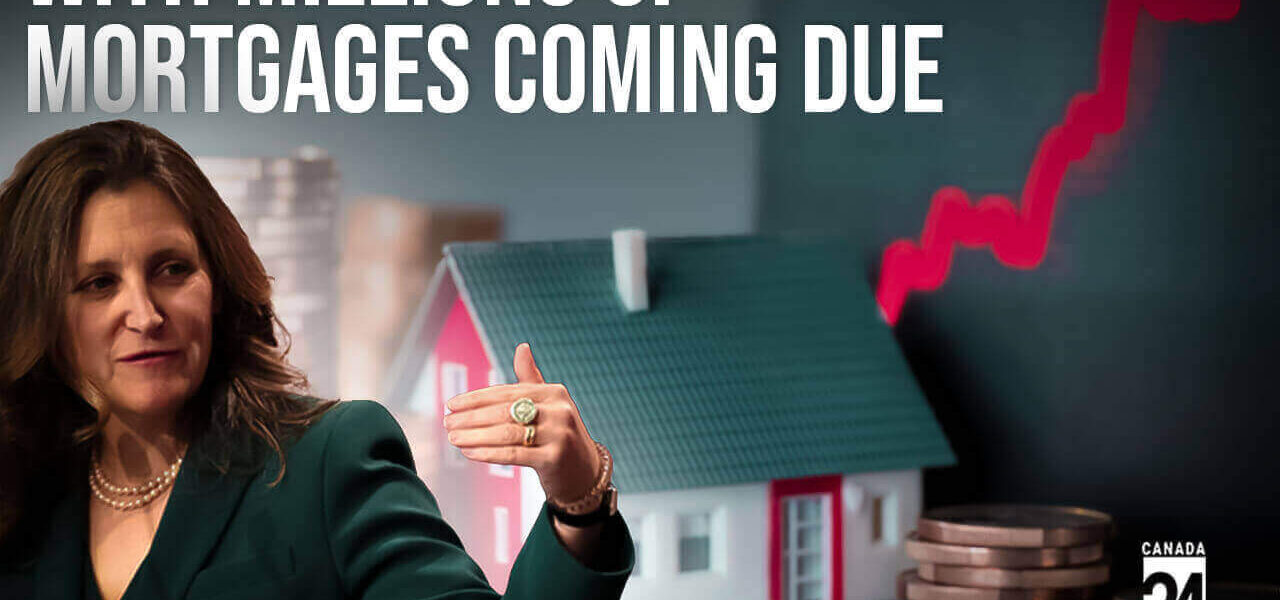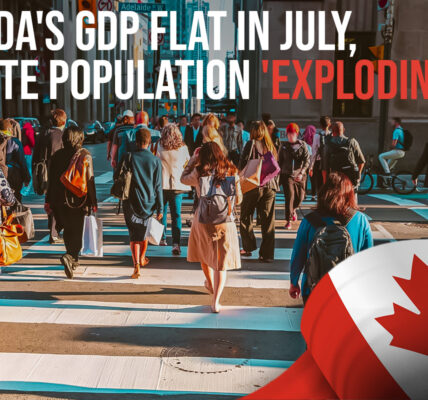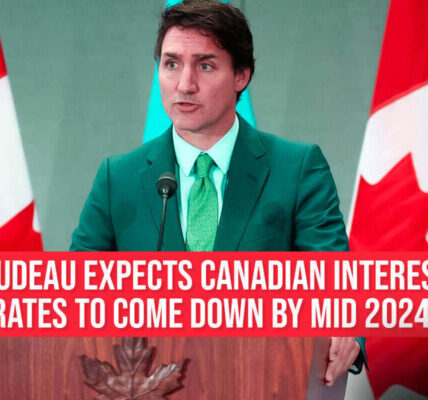With Millions Of Mortgages Coming Due, Finance Minister Expects Banks ‘to Work With’ Canadians
On Sunday, Freeland said on Rosemary Barton Live, “I hear most people worry about interest rates right now, especially people who have mortgages and are concerned about the renewal of their mortgages.”
According to Royal LePage research, almost three million Canadians will face mortgage renewals in the next 18 months. As a result, many people can expect significantly larger monthly payments.
This is raising concern among homeowners, who have told CBC News that they intend to make considerable lifestyle changes to handle the increased expense.
Bikramdeep Singh of Vancouver told CBC News that he expects his mortgage payments to jump by 30 to 40% when it is renewed next year.
“That’s going to be a significant chunk of money I’m spending every month,” the homeowner admitted earlier this week. “That will undoubtedly have an impact on my way of life.” I’m going to make some changes.”
Kevin Larkin’s lease in Surrey, British Columbia, comes up for renewal in January.
“I’ve been running the numbers, and I don’t see how I’m going to be able to renew and afford this,” he told reporters. “It’s unfortunate.” I work as a professional. I work. I’m attempting to provide for my family.”
Freeland announced a Canadian Mortgage Charter, a non-binding set of guidelines and expectations Ottawa has laid down for banks concerning mortgages, as part of the fall economic statement delivered on Tuesday.
The charter, which has no legal authority, includes provisions such as the option to temporarily prolong amortization periods, the elimination of a stress test when switching lenders at the time of renewal, and the waiver of some expenses.
When asked if banks could be trusted to follow the rules in the absence of a clear enforcement mechanism, Freeland stated that the interests of the government, banks, and ordinary Canadians are all aligned on this subject.
“It is my hope — but also really my belief — that the banks are going to work with us, the government, and work with Canadians to act on these commitments.”
“It is an important issue for the finance minister to publish — in black and white, in both official languages — our expectations for how banks will support their customers.” “It’s a significant event in and of itself,” she said.
Freeland stated that Canadian homeowners must understand the regulations and what to expect when speaking with their banks.
“Canadians need to know about it, that’s why I emphasize it so much,” she told reporters. In addition, Freeland would not rule out additional measures in a spring budget.
Freeland, who is also the deputy prime minister, stated that her other priority is for the economy to improve broadly enough so that the Bank of Canada can cut interest rates without concern about reinstating inflation.
“Because that is the best outcome for everybody,” she went on to say.
In Canada, inflation has dropped from 8.1 percent in June 2022 to 3.1% last month.
Meanwhile, the Bank of Canada’s benchmark interest rate has risen to 5%, and bank governor Tiff Macklem signaled this week that this may be enough to keep growing prices in check.
Freeland stressed the importance of Canada’s ability to pull off a “soft landing” from the interruption of the COVID-19 outbreak and escape a severe recession thus far.
When the government’s plan was unveiled earlier this week, Conservative Leader Pierre Poilievre slammed it.
“With this $20 billion of costly new spending, this update can be summed up very simply: prices are up, rent up, debt up, taxes up, time’s up,” he told reporters.
“Sensible Conservatives will vote no confidence in this heinous scheme.” He is not worth the cost after eight years as Prime Minister. And today, he adds another $20 billion to inflation, putting downward pressure on interest rates.”





